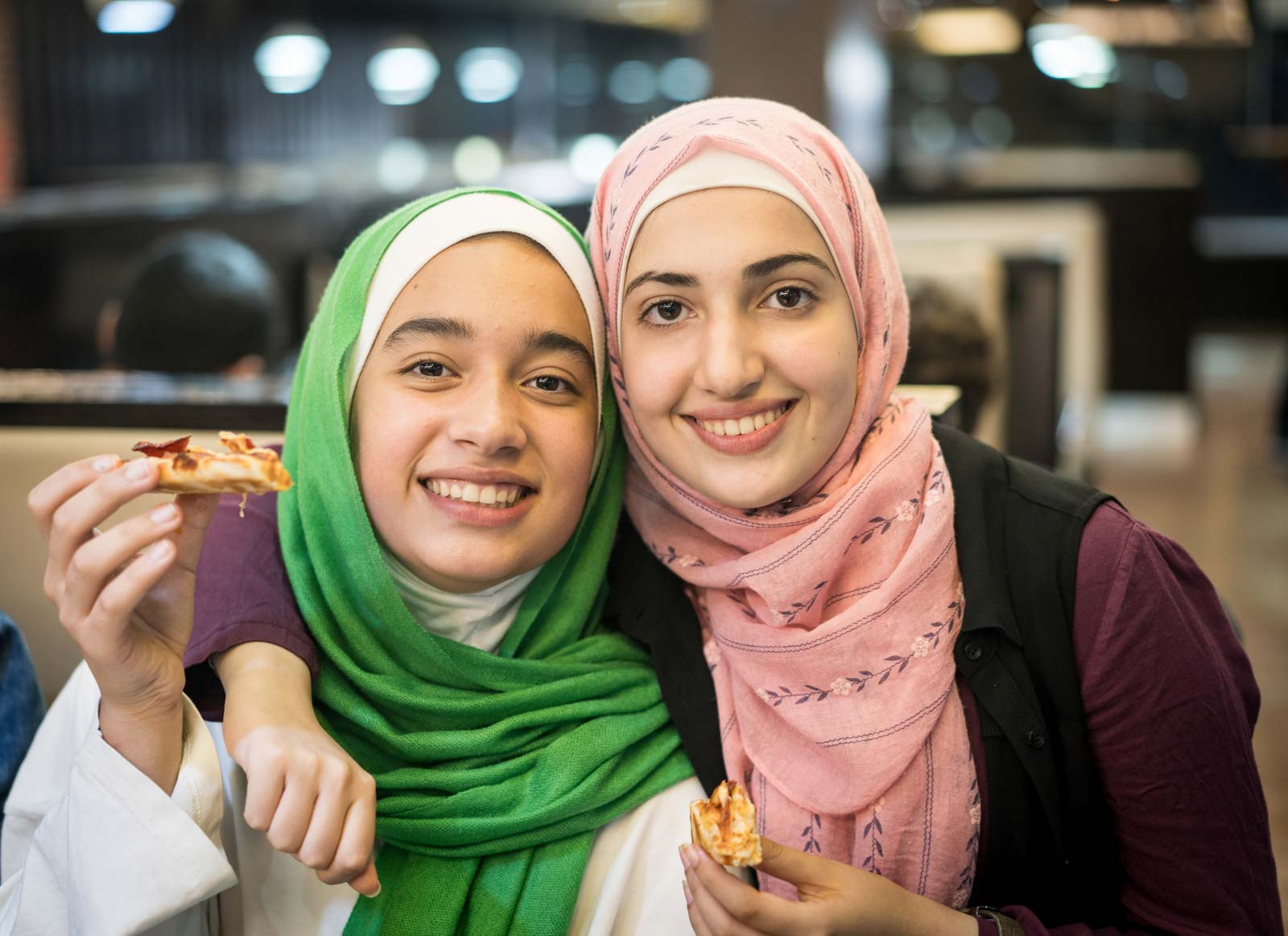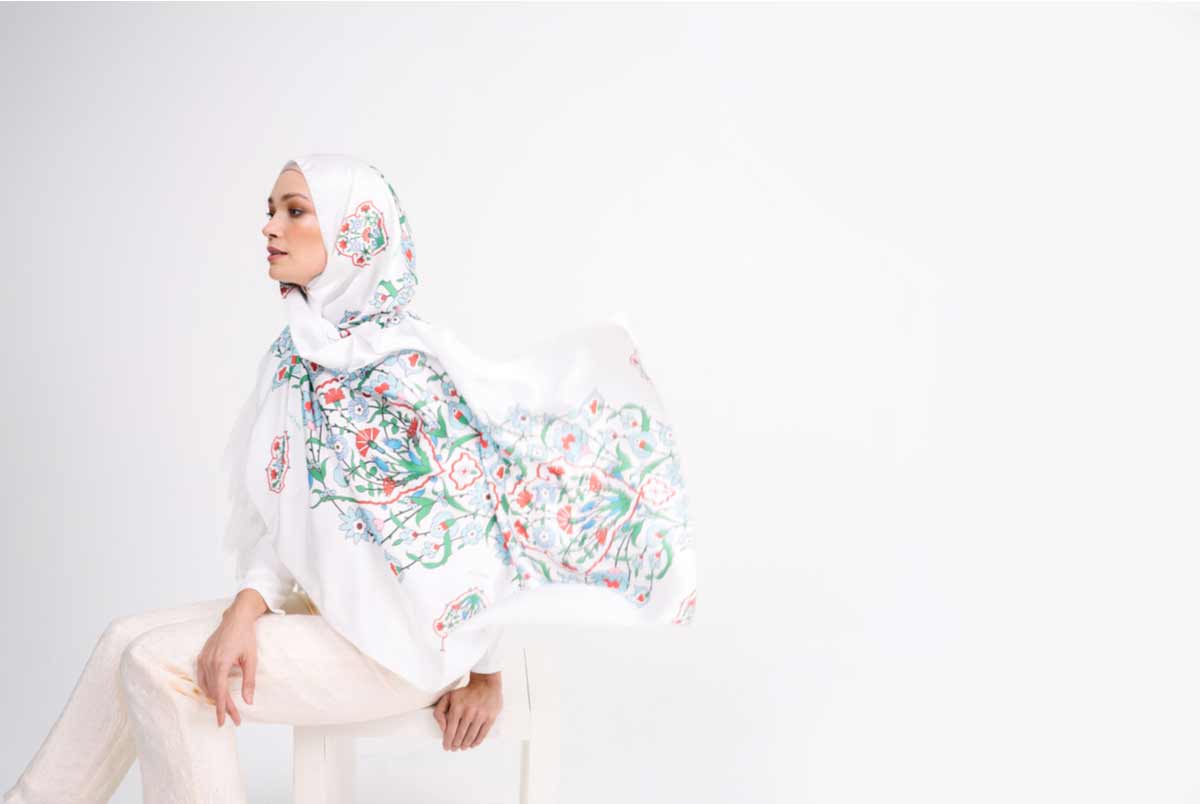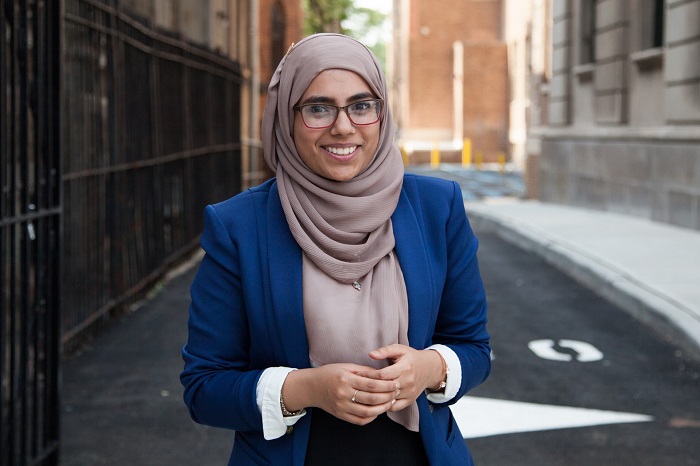“You don’t need this.” These are the words that will probably always represent my first experience with hijab. Though I was only four years old and in kindergarten, my mother would cover my hair with a headscarf before I left to school each morning.
My former Christian parents accepted Islam the year I was born, and they wanted their children to be known as Muslims when they went to American public school.
But my kindergarten teacher had “better” ideas. Each day that I arrived at school, she would call me to her desk and remove my head cover, saying, “You don’t need this.” Then, at the end of the school day, she’d call me back to her desk to put my scarf back on before I returned home to my parents.
Yes, I was confused a bit, but I’d shrug it off because in my four-year-old world, adults always knew best. And it wasn’t until years later that it occurred to me that this was something I should’ve talked to my parents about.
‘Finally, Someone Will Help Me’
It certainly wasn’t easy going to school each day looking different from all the other girls. The kids poked fun at me, and it was a daily routine for them to snatch off my scarf and toss it around just for fun—while the teachers looked on without even a word of reprimand to the students.
In fact, the only time I recall a teacher intervening was when I was in fourth grade and was outside for recess, and I fought the boy who snatched off my scarf and threw it in the dirt. When I saw my teacher approaching, I felt relieved. Finally, someone will help me, I thought.
But she promptly proceeded to take only me inside the building—for punishment. And I had to sit in the hall alone for the rest of the day—“to teach me a lesson.”

I Knew I Was Different
I think one of the greatest benefits I gained from my experience covering my hair in American public school was the ever present knowledge that I was different from others.
While some might think that’s a heavy burden for a child to carry, my experience has taught me it’s the other way around: Those Muslims who had the “luxury” of blending in with peers carried the greatest burden, and I witnessed their pain and confusion firsthand. Some of them are not even Muslim today.
I often shudder at the thought of where I would be had my parents not required me to cover my hair from young. The Muslim girls whose parents put them in public school and believed “they can wait till puberty” faced a difficult sudden life change at the onset of menses.
One day they were just “normal Jane” and the next day, literally, they had to come to school looking like some crazy fanatic from the deserts of Arabia (as others would see it). Needless to say, many of these girls had an extremely difficult time making this transition.
So many did what could only be expected of a youth in the height of puberty when self-image and what others think is exaggerated in one’s mind: They did to themselves what my kindergarten teacher did to me.
They told themselves, “You don’t need this hijab.” And they wore hijab on their way out the door and promptly removed the headscarf when they arrived at school—then put it back on before returning home.
I know it’s probably the corniest, most cliché thing to say. But it’s true. I love hijab. And it’s not because it’s easy to wear it in America (as my public school experiences clearly show). And it’s certainly not because of all those annoying reasons so many Muslims attach to making things easy for men.
Truth be told, I think that encouraging girls to love hijab because men’s sexual desires will be less intense is one of the most dangerous, damaging things—psychologically and spiritually—you can do to a Muslim girl, especially living in the West.
So many things are pulling at us, and it’s hard enough walking around as the poster child for Islam while the boys effectively “blend in.”
And if a Muslim girl gets weak, she can’t hide her faults so easily—because she has only one of two options: wear hijab and announce to others that you’re hijabi and human (and that’s just unthinkable) or remove hijab and announce to others that you’re a “bad Muslim” (which is the only category many Muslims imagine non-hijabis can be in).
And then on top of that, we want to give girls the added burden of loving hijab because it benefits someone else! No thank you. I love hijab because it benefits me. Sorry, but when it comes to my soul, I get a bit selfish. And I think other girls should too. And it starts with building a relationship between you and Allah—forget the rest of the world.

‘She Removed Hijab to Get Closer to Allah’
If I’d heard this ten years ago, I’d probably have scoffed at it. How could someone remove their hijab to get closer to Allah? Certainly, you can’t disobey Allah for the sake of Allah.
And I agree.
But that’s the teachings of Allah and His Messenger, peace be upon him. Unfortunately, some Muslims have different teachings. No, no one says outright that you’ll get closer to Allah by removing the hijab. But our constant harassment of women who wear hijab sends that very message.
No matter what style of hijab women wear, we somehow end up getting harassed—by Muslims. And nope, even wearing the niqaab (the face veil) won’t solve this one.
As I discussed in my blog, ‘But She Looks So Good’: When Men’s Desires Rule: Even when I myself wore all-black, niqaab, and an over-the-head abaya, I was constantly told I should cover my eyes too. Why? Because I wasn’t covered “enough”…not for Allah, but for the men with insatiable sexual appetites for whom my eyes—which I actually needed unobstructed to see where I was going—were just too much temptation.
So because of the constant harassment from Muslims and the constant discrimination from non-Muslims, a friend of mine removed her hijab “just to have some peace.” And what does she say about her faith today? “I feel closer to Allah.” Why? Because she feels she can worship her Creator without being bothered—by Muslims or non-Muslims.
The Muslims don’t know she’s Muslim, so they don’t harass her about how faulty her hijab is, and the non-Muslims don’t know she’s Muslim so they don’t make fun of her Islam.
And no matter how faulty this logic is by Islamic standards, it’s difficult to argue against its logic by worldly standards. So the only solution is to stop the harassment of Muslim women—especially those who wear hijab, regardless of whether or not it’s the type of hijab you personally approve of.
This Bittersweet Hijab
Though I love hijab, I still struggle with it in America. No, thankfully, my struggles are not so serious that I’ve ever wished to remove it. But I struggle with the fears I have for my daughter and other girls coming up in this society—and in the entire Muslim world.
On the one hand, I fear they’ll face people like my kindergarten teacher, the “You don’t need this” non-Muslims of the world. More tragically, I fear they’ll face the “Your hijab is never good enough” Muslims of the world who seem to be on a mission to make sure no Muslim woman feels comfortable obeying Allah the best she knows how.
And while I remain hopeful because wearing hijab is a beautiful, freeing experience for a woman, I also remain fearful because the hijab is viewed as a “blessing” only if we’re able to ignore the discouraging messages of non-Muslims and Muslims, who make women feel like wearing hijab is just one big headache.
And while the hijab certainly is not a headache, people criticizing women definitely give them one. And this struggle with people just makes it that much more tempting for Muslim girls to say to themselves, “You don’t need this”—and by it, mean much more than the hijab.
This article is from our archive, originally published on an earlier date, and now highlighted for its importance.
The post My Bittersweet Hijab appeared first on About Islam.
source https://aboutislam.net/family-life/culture/my-bittersweet-hijab/




No comments:
Post a Comment